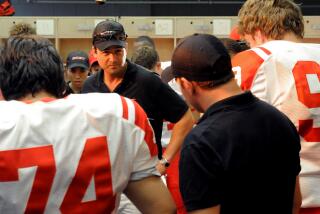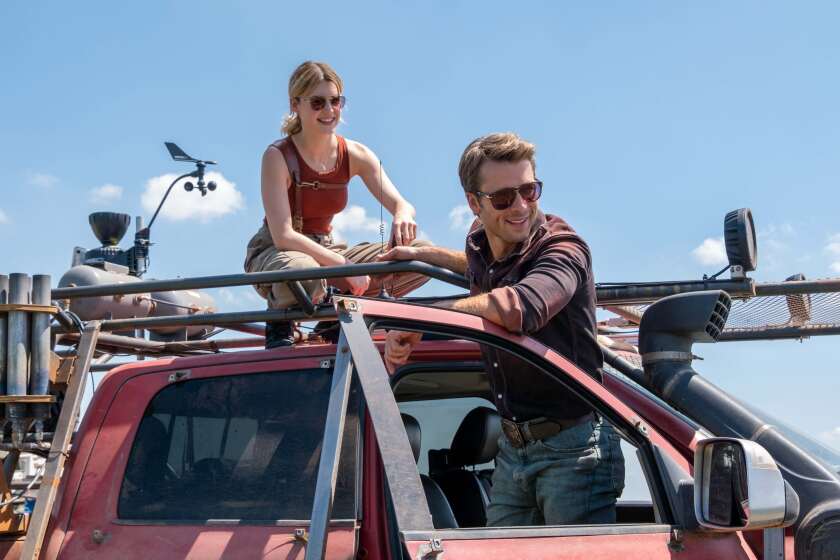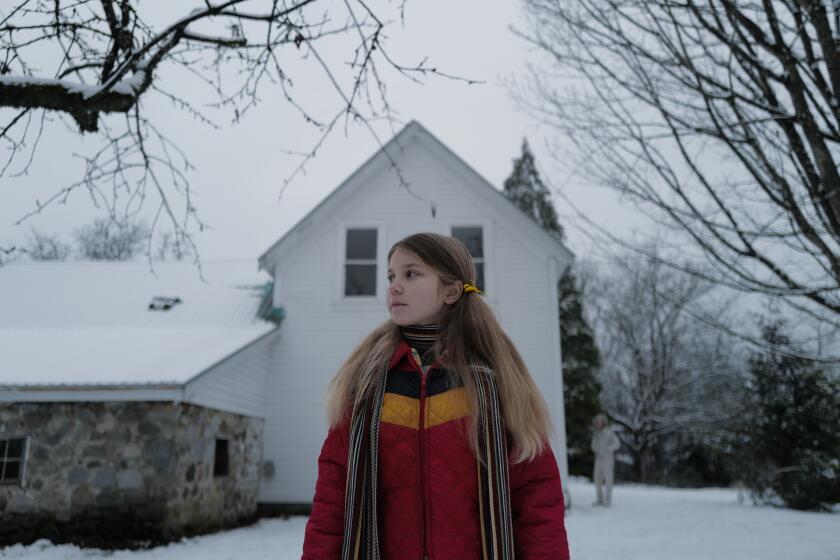Shoulder to shoulder
Brownie WISE is one of the unsung heroes of modern marketing. Her big idea was simplicity itself -- to sell Tupperware at home parties, where potential customers could learn how the polyethylene storage products could enhance the homemaking experience. Her Tupperware parties became so popular that Earl Tupper hired Wise to become vice president of his company. By linking products to lifestyle choices, Wise had unearthed one of the great sales pitches of the postwar era, yet it’s the product, not Wise, that’s a household word.
But all that’s changing, for Wise and several other important pioneers of American business. Wise was prominently featured on a recent PBS documentary about Tupperware, and she and 39 other capitalist firebrands are the stars of “Enterprising Women: 250 Years of American Business,” a traveling multimedia exhibit on display in the Getty Gallery of the Central Library through Sept. 19.
“It’s happening slowly, but women and their role in the history of business is being recognized,” says curator Edith Mayo, who assembled the exhibition. “Previously, historians studied the exploitation of women in the workforce. Examining women as contributors to the economic mainstream is just now happening.”
The history of American businesswomen, as it turns out, begins with the founding of the republic. Even as the earliest “domestic engineers” were bound to menial household and farm chores by oppressive laws and cultural attitudes, there existed a subset who escaped the yoke of subservience and thrived.
Among them were the earliest owners of printing presses, Colonial precursors to Washington Post owner Katharine Graham. Reared in a family of printers, Mary Katharine Goddard was a multi-tasking wonder -- the publisher of the Maryland Journal, the first postmistress of the Colonies and, most significantly, the first printer of the Declaration of Independence in 1777. But Goddard’s story is also a cautionary tale about institutionalized prejudice. When Goddard’s brother William, who left Baltimore to establish the nation’s postal system, returned home, he demanded control of the Maryland Journal. It was the first hostile takeover, as it were, and Mary Goddard lost.
“The role of men and families is a big theme in the show,” says Mayo, who curated the exhibit under the auspices of the Schlesinger Library of the Radcliffe Institute for Advanced Study at Harvard University and the National Heritage Museum. “Either men couldn’t take the competition, or felt emasculated. But women felt the family pressure in a way that men didn’t, because women had a responsibility to care for their families and homes.”
“Enterprising Women” abounds with odd rise-and-fall stories such as Goddard’s. Elizabeth Hobbs Keckley was a slave and an autodidact, learning to read, write and sew while still under the thumb of plantation owners. Keckley eventually became a dressmaker to white women of means, and earned enough money to buy herself out of slavery and into business. By 1860, five years before emancipation, she’d opened a dress operation in Washington, D.C., and become Mary Lincoln’s private dressmaker and closest confidante.
Keckley’s relationship with Lincoln ended when she wrote a tell-all about life in the White House called “Behind the Scenes,” a century before John Dean, Dick Morris and their ilk turned White House insider books into a cottage industry. Keckley died penniless in the Home for Destitute Women and Children, an institution she helped found.
Progress for women in business was glacial. It was the late 19th century before single and married women were entitled to property rights.
As the exhibit abundantly illustrates, female self-determination -- given a boost by the first women’s rights conference in Seneca Falls, N.Y., in 1848 -- created a new class of entrepreneurs, many of them catering to women’s needs that had been largely ignored. Hence, the rise of the female consumer class, and the women who contributed to its growth.
Lydia Estes Pinkham, for instance, created a hugely successful herbal remedy for “female complaints.” Ellen Curtis Demorest, created the first ready-made sewing patterns in the mid-19th century, publishing them in her periodical Demorest’s Monthly Magazine. Christian Scientist Martha Matilda Harper founded the first successful beauty parlor franchise around the same time.
Significant exhibit space is reserved for the astonishing story of Madam C.J. Walker. The child of former Louisiana slaves, the former Sarah Breedlove was orphaned at age 7 and forced into manual labor. She moved to St. Louis in 1889 and became a saleswoman for Annie Turnbo Malone, an African American entrepreneur who employed a door-to-door sales force to sell her women’s hair-care products.
Walker eventually created her own hair-care product, but her vision extended far beyond balance sheets; Walker’s beauty company became a powerful incubator of empowerment for African American women. She initially founded Lelia College in 1908 as an institution to train her sales agents, but it grew exponentially, with branches all over the country, and became a primary vocational school for women seeking business opportunities.
There’s a replica of one of Walker’s beauty salons in the exhibit, including one of her “wave machines.” Walker’s invention, which put long-term curl in hair, was a popular device for both black and white women.
“Enterprising Women” concludes with a procession of more familiar 20th century names, including Ruth Handler, inventor of the Barbie doll and co-owner of Mattel Toys; the Washington Post’s Graham; and uber-mogul Oprah Winfrey. And look, there in the corner -- it’s none other than Martha Stewart, founder of Martha Stewart Omnimedia and a female entrepreneur for whom the public’s initial adoration and current opprobrium perhaps best crystallizes the conflicting attitudes confronting women in business.
“We agonized and debated over that one,” Mayo says. “But Stewart’s story, I think, typifies certain attitudes toward women in power, so we kept her in.”
*
‘Enterprising Women’
250 Years of American Business
Where: Getty Gallery at the Central Library, 630 W. 5th St., downtown L.A.
When: Mondays to Thursdays, 10 a.m. to 8 p.m.; Fridays, 10 a.m. to 6 p.m.; Saturdays, 10 a.m to 6 p.m.; Sundays, 1 to 5 p.m.
Ends: Sept. 19
Cost: Free
Contact: (213) 228-7000
More to Read
The biggest entertainment stories
Get our big stories about Hollywood, film, television, music, arts, culture and more right in your inbox as soon as they publish.
You may occasionally receive promotional content from the Los Angeles Times.






